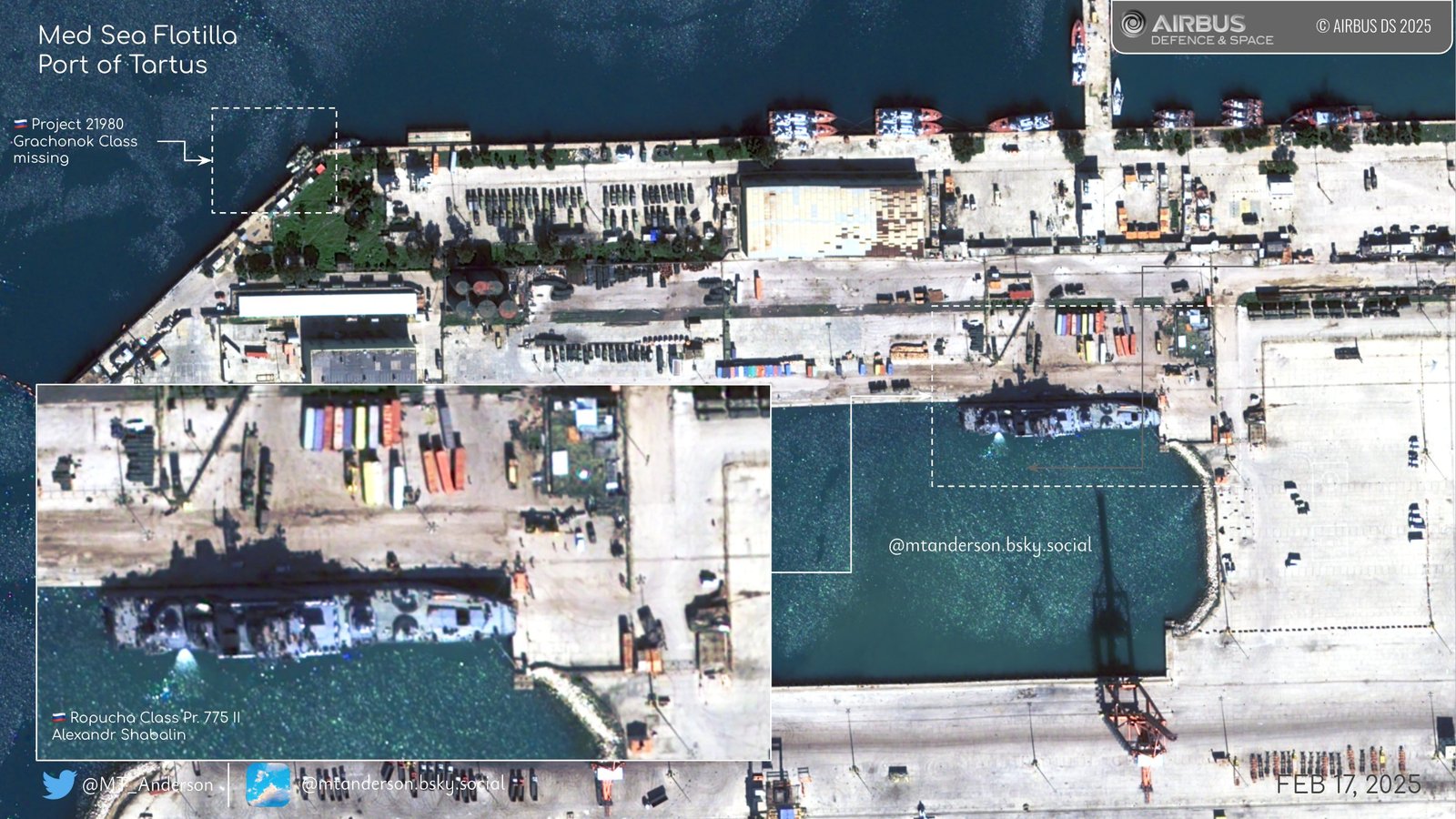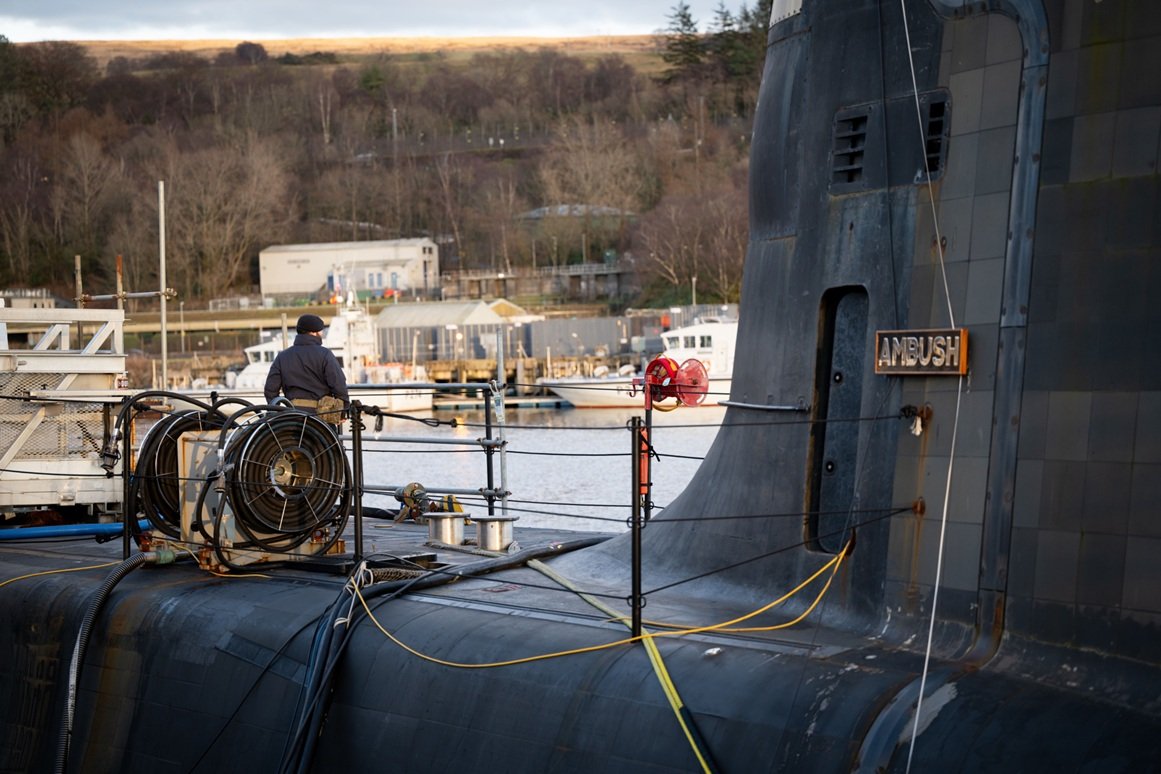
Israel lobbies in US to keep Russian bases in Syria, Kurdistan Workers’ Party declares ceasefire with Turkey after 40-year fight
Israel, March 2, 2025 – The media is still reporting on the White House rift, which they apparently believe to be extremely important because it involved US President Trump and Vice President J.D. Vance on one side and Ukrainian President Volodymyr Zelensky on the other. In fact, it would probably be appropriate to write about other things that are being overlooked despite the incredibly good work that Reuters has done. We can assume from the content of its reports that they may be related, they came out practically simultaneously.
The first of these reports says that Israel is lobbying the United States to keep Syria weak and decentralized, including by allowing Russia to maintain its military bases to counter Turkey’s growing influence in the country, four sources familiar with the effort said. Turkey’s often tense relations with Israel have reached a critical juncture during the Gaza war, with Israeli officials telling Washington that Syria’s new Islamist rulers, supported by Ankara, pose a threat to Israel’s borders, the sources said. The lobbying points to a coordinated Israeli campaign to influence U.S. policy at a critical juncture for Syria, as the Islamists who ousted Bashar al-Assad seek to stabilize the fractured state and pressure Washington to lift previously imposed sanctions. Israel conveyed its views to top U.S. officials during meetings in Washington in February and subsequent meetings in Israel with U.S. congressional representatives, three U.S. sources and another person familiar with the contacts confirmed.
The main points were also circulated to some senior U.S. officials in an Israeli so-called “white paper,” two of the sources said. All the sources spoke on condition of anonymity because of diplomatic sensitivities.
“Israel’s big fear is that Turkey will come in and protect this new Syrian Islamist order, which will then become a base for Hamas and other militants,” said Aron Lund, a fellow at the U.S.-based think tank Century International.
The U.S. State Department and the National Security Council did not immediately respond to requests for comment for this report. The Israeli prime minister’s office and the foreign ministries in Syria and Turkey did not immediately respond to requests for comment. It is unclear to what extent U.S. President Donald Trump’s administration is considering accepting the Israeli proposals, the sources said. There has been little discussion about Syria, leaving uncertainty about the future of sanctions and whether U.S. forces will remain stationed in northeastern Syria.
Lund said Israel has a strong chance of influencing U.S. thinking, describing the new administration as fiercely pro-Israel. “Syria is now barely on Trump’s radar. It’s a low priority and there’s a policy gap that needs to be filled,” he said. Israel has publicly declared its distrust of Hayat Tahrir al-Sham (HTS), the Islamist faction that led the campaign to oust Assad and that emerged from a group that was affiliated with al-Qaeda until it severed ties in 2016.
Israeli Prime Minister Benjamin Netanyahu said on Sunday that Israel would not tolerate the presence of HTS in southern Syria or any other forces affiliated with the new rulers, and called for the demilitarization of the territory.
Since Assad’s ouster, Israel has carried out extensive airstrikes on Syrian military bases and moved forces into a UN-monitored demilitarized zone in Syria. Earlier this week, Israel attacked military sites south of Damascus. Israel is now deeply concerned about Turkey’s role as a close ally of Syria’s new rulers, three U.S. sources said, describing reports relayed by Israeli officials. Turkish President Tayyip Erdogan, who leads the Islamist-rooted AK Party, said last year that Islamic countries should form an alliance against what he called “the growing threat of expansionism” from Israel.
Earlier this month, Israeli Foreign Minister Gideon Saar said Israel was concerned that Turkey was supporting Iran’s efforts to revive Hezbollah and that Islamist groups in Syria were creating another front against Israel.
Turkey has said it wants Syria to become stable and pose no threat to its neighbors. It has repeatedly said that Israel’s moves in southern Syria were part of its expansionist and invasive policy and showed that Israel does not want regional peace. To contain Turkey, Israeli officials have been trying to convince U.S. officials to allow Russia to keep its Mediterranean naval base in the Syrian province of Tartus and the Hmeimim air base in Latakia province, the sources said. When Israeli officials presented Russia’s continued presence in a positive light during a meeting with U.S. officials, some participants were surprised and argued that Turkey, a NATO member, would be a better guarantor of Israel’s security, two of the U.S. sources said. Israeli officials have been “adherent,” insisting that this is not the case, the sources said. Meanwhile, the new Syrian leadership is negotiating with Russia over the fate of the military bases.
Syria’s Islamist-led government has sought to reassure Western and Arab states of its intentions, promising an inclusive Syria and seeking to restore diplomatic ties with governments that have shunned Assad. Syrian leader Ahmed al-Sharaa told a group of foreign journalists as he opened a new chapter in December that Damascus does not want conflict with Israel or other countries. But Israeli officials have expressed concerns to U.S. officials that the new government could pose a serious threat and that the new Syrian armed forces could one day attack, the sources said.
Assad has kept the border with the Israeli-occupied Golan Heights calm despite an alliance with Israel’s arch-enemy Iran, which played a dominant role in Syria until Assad’s fall upset the balance of power in the Middle East. Two sources said that in the final weeks of US President Joe Biden’s term, his administration considered offering sanctions relief to the new Syrian leaders in exchange for the closure of two Russian military bases.
Two former US officials under the Biden administration did not immediately respond to requests for comment. The sources said that Biden’s team had failed to reach an agreement before Trump took office on January 20 and that they expected the new US president, who has grown closer to Russian President Vladimir Putin, to be more open to Russia’s continued presence.
US Dewey guided-missile destroyer and Russian corvettes in joint naval exercise
US, February 18, 2025 – Possible participation of a Ukrainian delegation. In parallel with other ongoing diplomatic activities, Indonesia has organized an international naval exercise to which US and Russian ships have been invited. It is an opportunity for them to train together, unimaginable just a few weeks ago and during the three years of the conflict in Ukraine. The Multinational Naval Exercise Komodo 2025 is scheduled to take place from February 15 to 22, 2025, near Bali, and will not include combat training. It will exclusively involve non-combat operations of the fleets in managing disasters and humanitarian crises, under the motto “Maritime Partnership for Peace and Stability.” On […]
Israel’s lobbying to keep Syria weak points to a markedly different approach compared to other US allies in the region, notably Saudi Arabia, which said last month it was in talks with Washington and Brussels to help lift Western sanctions. A source in Erdogan’s AK Party said Ankara hosted Russian Foreign Minister Sergei Lavrov on Tuesday partly to guard against uncertainty over the new US policy in Syria and to counter any Israeli measures there – including those taken jointly with the US – that threaten Turkish interests.
A second Reuters report said Kurdish militants from the PKK were declaring a ceasefire, heeding a call from their jailed leader. The outlawed Kurdistan Workers’ Party (PKK) militant group declared an immediate ceasefire on Saturday, heeding a call by its jailed leader Abdullah Ocalan to disarm, a major step towards ending a 40-year insurgency against the Turkish state. Ocalan called on the PKK on Thursday to lay down its arms and disband, a move supported by President Tayyip Erdogan’s government and the opposition pro-Kurdish DEM party. If successful, the move could have far-reaching implications for the region, ending a conflict that has claimed more than 40,000 lives since the PKK — now based in the mountains of northern Iraq — began its armed insurgency in 1984. It could give Erdogan domestic support and a historic opportunity to bring peace and development to southeastern Turkey, where the conflict has killed thousands and severely damaged the economy. The PKK has expressed hope that Ankara will grant Ocalan, who has been held in near-total isolation since 1999, more freedoms to lead the disarmament process, adding that the necessary political and democratic conditions must be created for success.
“We as the PKK fully agree with the content of the call and declare that we will pay attention to the needs of the call and implement it from our side,” the group said in a statement, according to the Firat news agency.
“In addition, issues such as the composition of the weapons, which are being put into practice, can only be implemented under the practical guidance of the leader Apa,” the group said, using a nickname for Ocalan and adding that if they are not attacked, they will immediately stop all hostilities.
The PKK, designated a terrorist group by Turkey and its Western allies, said it was ready to hold a congress as Ocalan had requested, but that the necessary security conditions should be created so he could “personally lead and organize” it. Without referring to the PKK statement, Turkish Vice President Cevdet Yilmaz said on Saturday that the fight against terrorism had significantly damaged Turkey’s potential by hindering social and economic development, investment, tourism and energy.
“The dissolution of a terrorist organization without any negotiations means a new environment and era in terms of development and democracy, as well as security,” Yilmaz told X.
Previous efforts to end the insurgency, which took place in 2009-11 and 2013-15, have failed and resulted in increased violence. The DEM party on Friday called on the government to take steps towards democratization, telling Reuters that its response would be critical. For the process to move forward, the PKK said Ocalan must be given “physical freedom, to achieve living and working conditions, to establish relations with whoever he wants, including friends, without hindrance.”
Whether Ankara will address these issues is unclear. Turkish Justice Minister Yilmaz Tunc told CNN Turk television on Friday that no amnesty, house arrest or other options had been discussed and that no negotiations had taken place.
Analysts said Erdogan, who has repeatedly sought to end the conflict in the past, is focusing on the domestic political dividends that peace could bring as he seeks to extend his two-decade rule beyond 2028, when his current term expires. Ending the insurgency would remove a permanent fuse in Kurdish-controlled, oil-rich northern Iraq and facilitate efforts by the new Syrian administration to assert greater control over areas in northern Syria held by Kurdish forces. Ocalan’s The call, prompted by a surprise proposal in October from Erdogan’s ultranationalist ally, was welcomed by the United States, the European Union and other Western allies, as well as Turkey’s neighbors Iraq and Iran.
Turkey has sought to capitalize on regional geopolitical developments since the fall of Syrian President Bashar al-Assad after 11 years of civil war in which Ankara has backed rebels seeking to overthrow him. The new Islamist government in Damascus has forged good relations with Turkey, which continues to support Syrian Arab fighters in their conflict against Kurdish-led forces in northern Syria. Since Assad’s fall, Turkey has repeatedly demanded the disarmament of the Syrian Democratic Forces (SDF) and the U.S.-aligned YPG militia, warning of military action if they fail to do so. The SDF, however, said that while Ocalan’s call was positive, it did not concern them.



Peter Weiss


















